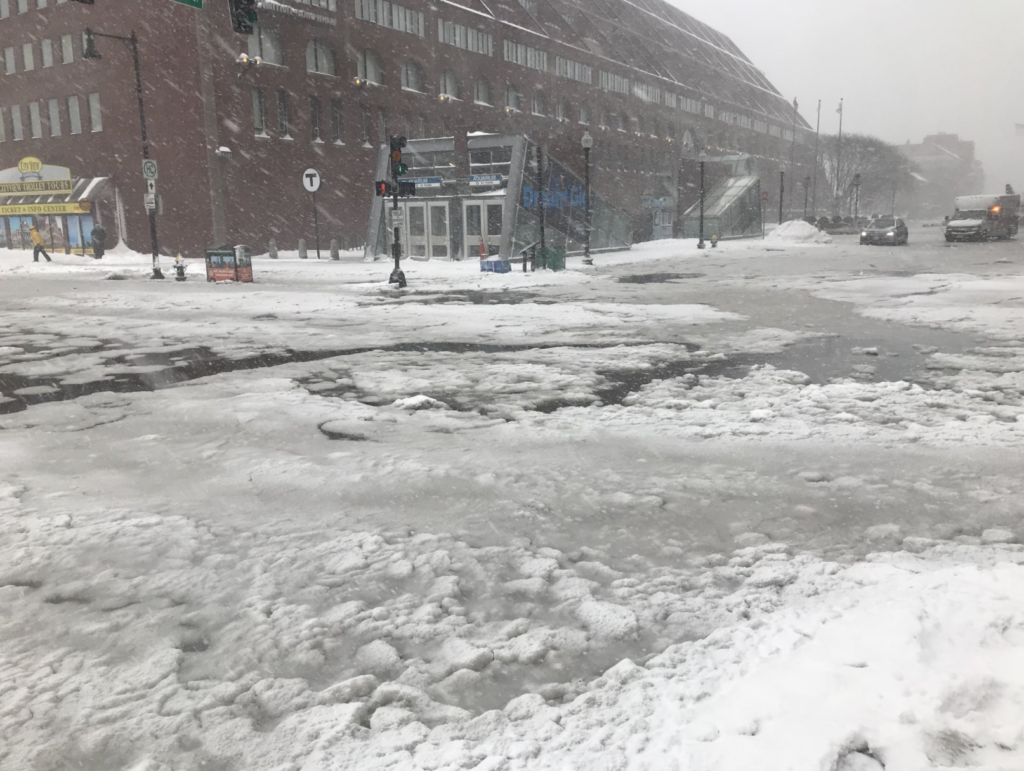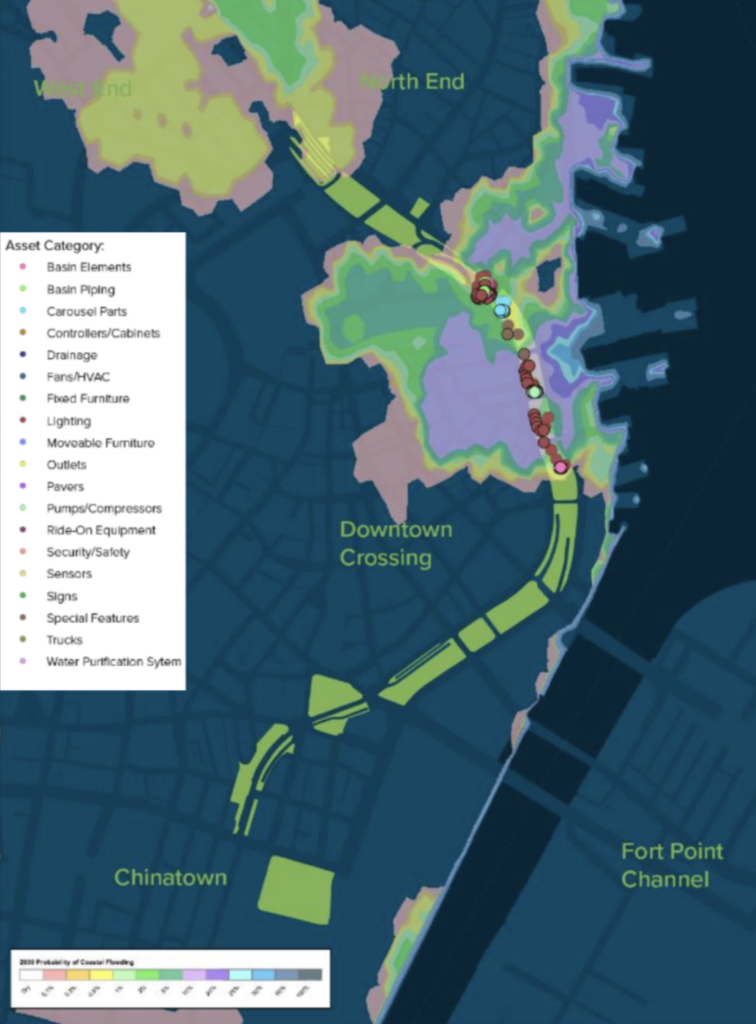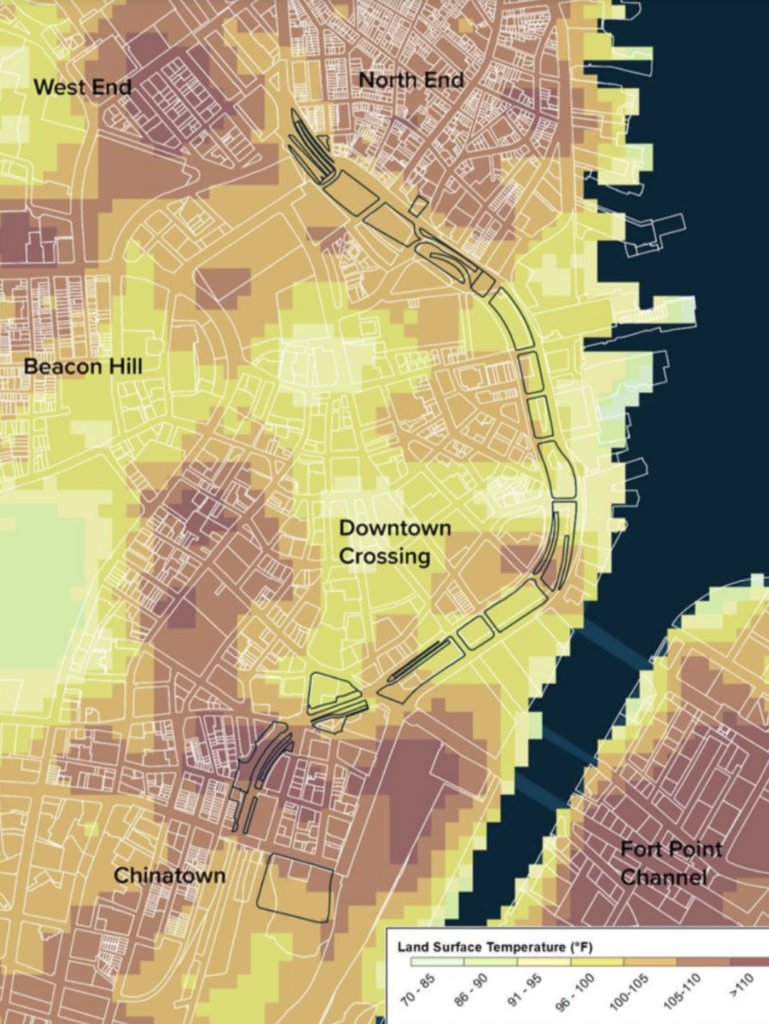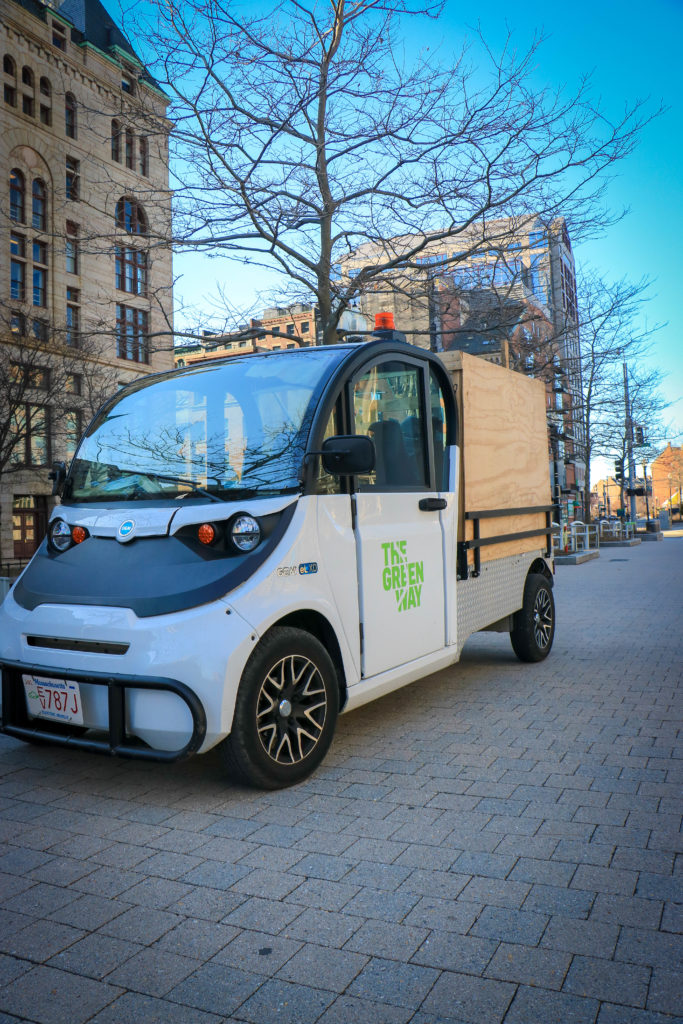The Rose Kennedy Greenway, located one block west of Boston’s downtown waterfront faces significant and growing risks of damage and disruption from climate change and extreme storm events. In 2020, the Greenway Conservancy commissioned a Climate Change Vulnerability Assessment and Asset Management Plan. Reassuringly, the Conservancy has sufficient funding to implement the report’s high-priority recommendations for asset protection.

This Plan presents a roadmap for the Conservancy to protect vulnerable assets and manage risks from the effects of climate change, and to adopt more sustainable practices to reduce its carbon footprint. The Plan gives an overview of the climate risks that Boston will continue to face and offers prioritized recommendations for how the Conservancy can protect The Greenway’s cherished assets. The Plan was developed by Kleinfelder, the same firm working with the City of Boston on its Climate Ready Boston initiative; this work was funded with capital funding from the Massachusetts Department of Transportation, which owns the parkland and the highway tunnel beneath.

Priority recommendations focus on protecting the Greenway Carousel and the equipment vaults for the Rings Fountain and Harbor Fog from flooding. The Conservancy has funding via the MassDOT Capital Plan to implement these high-priority recommendations. The Conservancy will integrate other recommendations, such as raising electrical and irrigation infrastructure and addressing urban heat impacts, into ongoing and future design projects.

The Plan also examined the Conservancy’s carbon footprint and the park’s natural carbon stocks. The report found that 2019 emissions from park operations and office activities were measured at 172 metric tons of CO2 (roughly equivalent to 37 cars driven for one year), but that the park’s carbon stocks were 2.7 times the emissions. Park operations considered in these calculations include Conservancy operations, and do not include emissions from supplemental services or programmatic partners (e.g., food trucks or festivals).
The report notes that because the Conservancy’s park and office utilities are owned and paid directly by MassDOT, “it is difficult for the Conservancy to move unilaterally on decarbonization activities.” Despite these challenges, the Conservancy continues to take action, such as the 2020 replacement of 5 gas-powered vehicles with electric vehicles and conversion of 90% of the park’s almost 500 lights to energy-efficient LED’s.

With this Vulnerability Assessment and Asset Management Plan, the Conservancy is proud to continue its sustainability leadership. For more than 10 years the Conservancy has maintained our park landscape organically, introduced pollinator habitat, installed beehives, and instituted water conservation practices. We look forward to continuing this work as Boston faces the ongoing challenges of climate change.



